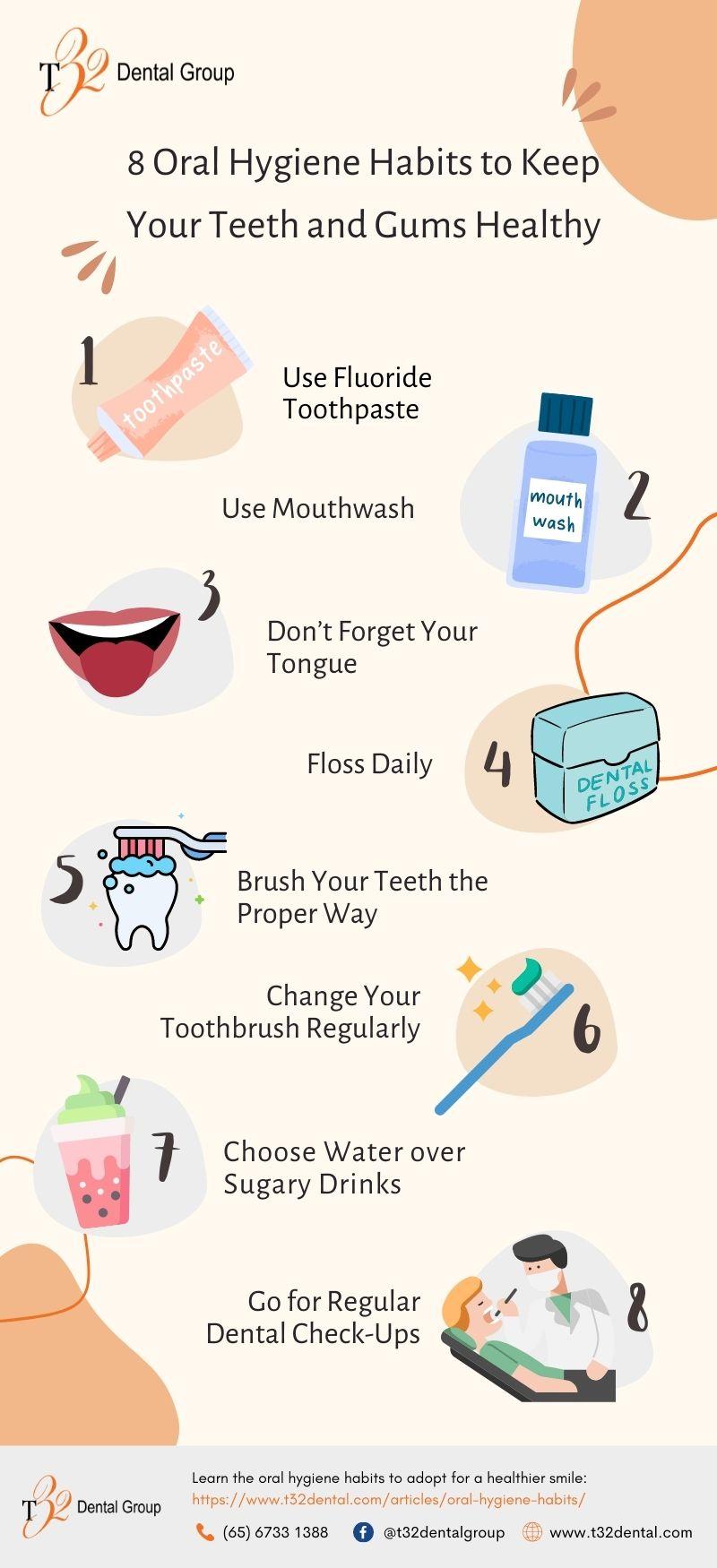
Introduction
Gum disease, also known as periodontal disease, is a common oral health issue that affects millions of people worldwide. It is caused by the buildup of plaque and bacteria on the teeth and gums, leading to inflammation and potential damage to the gum tissue and supporting structures. While gum disease can be treated, prevention is always better than cure. By adopting a few simple daily habits, you can maintain healthy gums and reduce the risk of developing gum disease.
1. Brush your teeth twice a day

One of the most important daily habits for maintaining healthy gums is brushing your teeth twice a day. Use a soft-bristled toothbrush and fluoride toothpaste to gently clean your teeth and gums. Brushing removes plaque and bacteria that can lead to gum disease.
2. Floss daily
In addition to brushing, it is crucial to floss your teeth daily. Flossing helps remove food particles and plaque from between your teeth and along the gumline. This prevents the buildup of bacteria and reduces the risk of gum disease.
3. Use mouthwash
Using an antimicrobial mouthwash can further enhance your oral hygiene routine. Mouthwash reaches areas that brushing and flossing may miss, killing bacteria and freshening your breath. Look for a mouthwash that is specifically designed to prevent gum disease.
4. Maintain a balanced diet
Your diet plays a significant role in your oral health. Consuming a balanced diet that is rich in fruits, vegetables, whole grains, and lean proteins provides essential nutrients for healthy gums. Avoid sugary and acidic foods and beverages, as they can contribute to gum disease.
5. Limit tobacco and alcohol consumption
Tobacco use and excessive alcohol consumption are detrimental to your oral health. Both can increase the risk of gum disease and other oral health problems. Quitting smoking and reducing alcohol intake can significantly improve the health of your gums.
6. Stay hydrated
Drinking plenty of water throughout the day helps maintain healthy gums. Water helps wash away food particles and bacteria, preventing them from accumulating and causing gum disease. It also promotes saliva production, which is essential for oral health.
7. Visit your dentist regularly
Regular dental check-ups and cleanings are crucial for preventing gum disease. Your dentist can identify early signs of gum disease and provide appropriate treatment. Professional cleanings remove plaque and tartar buildup, reducing the risk of gum inflammation and infection.
Summary
Maintaining healthy gums is crucial for overall oral health and well-being. Gum disease can lead to various complications, including tooth loss and systemic health problems. Fortunately, there are several daily habits you can incorporate into your routine to prevent gum disease. These include regular brushing and flossing, using mouthwash, eating a balanced diet, avoiding tobacco products, and Going Here scheduling regular dental check-ups. By following these habits consistently, you can keep your gums healthy and minimize the risk of gum disease.
- Q: How often should I brush my teeth?
- A: It is recommended to brush your teeth at least twice a day, preferably in the morning and before bedtime.
- Q: What type of toothbrush should I use?
- A: It is best to use a soft-bristled toothbrush to avoid damaging your gums. Replace your toothbrush every three to four months or sooner if the bristles become frayed.
- Q: Is flossing necessary for maintaining healthy gums?
- A: Yes, flossing is essential for removing plaque and food particles between your teeth and along the gumline. Aim to floss at least once a day.
- Q: How often should I visit the dentist?
- A: Regular dental check-ups are recommended every six months. Your dentist can detect early signs of gum disease and provide necessary treatment.
- Q: Are there any specific foods that promote gum health?
- A: Eating a balanced diet rich in fruits, vegetables, and whole grains can contribute to gum health. Avoid sugary snacks and beverages that can increase the risk of gum disease.
- Q: Can smoking affect my gum health?
- A: Yes, smoking is a significant risk factor for gum disease. It can also impair the healing process if you undergo any gum treatments.
- Q: How can I prevent gum disease during pregnancy?
- A: Maintaining good oral hygiene, eating a healthy diet, and visiting your dentist regularly are crucial during pregnancy to prevent gum disease, which is more common during this time.

Welcome to my website! I’m Timothy Martens, a dedicated and experienced Periodontist specializing in dental braces, gum disease treatment, dental scaling, and toothpaste recommendations. With a passion for oral health and a commitment to providing exceptional care, I strive to help my patients achieve healthy and beautiful smiles.
